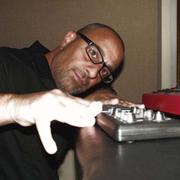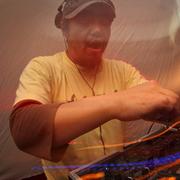埃勒特
| 基本信息 | |||
|---|---|---|---|
| 姓名 | 埃勒特 | 别名 | 暂无 |
| 国籍 | 德国 | 出生地 | |
| 语言 | 性别 | 男 | |
| 生日 | 星座 | ||
| 身高 | 体重 | ||
齐格弗里德·卡格-埃勒特(德语:Sigfrid Karg-Elert,1877年11月21日-1933年4月9日),德国作曲家,管风琴家。早年在莱比锡音乐学院学习,后来留校任教,并在欧美各地巡回演出弹奏管风琴和簧风琴。他以对各种键盘乐器和管乐器的深入掌握而知名,作品继承了巴赫风格,同时也受到德彪西和斯克里亚宾的影响,具有结构复杂,色彩丰富,效果辉煌的特点。
卡格-埃勒特原姓卡格(Karg),但由于此字在德语中意为“贪婪”,后来应经纪人之要求便加上意为“灵敏”的“Elert”。
Sigfrid Karg-Elert (November 21, 1877 – April 9, 1933) was a German composer of considerable fame in the early twentieth century, best known for his compositions for organ and harmonium.
He was born Siegfried Theodor Karg in Oberndorf am Neckar, Germany, the youngest of the twelve children of Johann Jacob Karg, a book dealer, and his wife Marie Auguste Karg, born Ehlert [sic]. The family finally settled in Leipzig in 1882, where Siegfried received his first musical training and private piano instruction. At a gathering of composers in Leipzig, he presented his first attempts at composition to the composer Emil Nikolaus von Reznicek, who arranged a three-year tuition-free scholarship at the Leipzig Conservatory. This enabled the young man to study with Salomon Jadassohn, Carl Reinecke, Alfred Reisenauer and Robert Teichmuller.
卡格-埃勒特原姓卡格(Karg),但由于此字在德语中意为“贪婪”,后来应经纪人之要求便加上意为“灵敏”的“Elert”。
Sigfrid Karg-Elert (November 21, 1877 – April 9, 1933) was a German composer of considerable fame in the early twentieth century, best known for his compositions for organ and harmonium.
He was born Siegfried Theodor Karg in Oberndorf am Neckar, Germany, the youngest of the twelve children of Johann Jacob Karg, a book dealer, and his wife Marie Auguste Karg, born Ehlert [sic]. The family finally settled in Leipzig in 1882, where Siegfried received his first musical training and private piano instruction. At a gathering of composers in Leipzig, he presented his first attempts at composition to the composer Emil Nikolaus von Reznicek, who arranged a three-year tuition-free scholarship at the Leipzig Conservatory. This enabled the young man to study with Salomon Jadassohn, Carl Reinecke, Alfred Reisenauer and Robert Teichmuller.
 加载评论内容,请稍等......
加载评论内容,请稍等......













